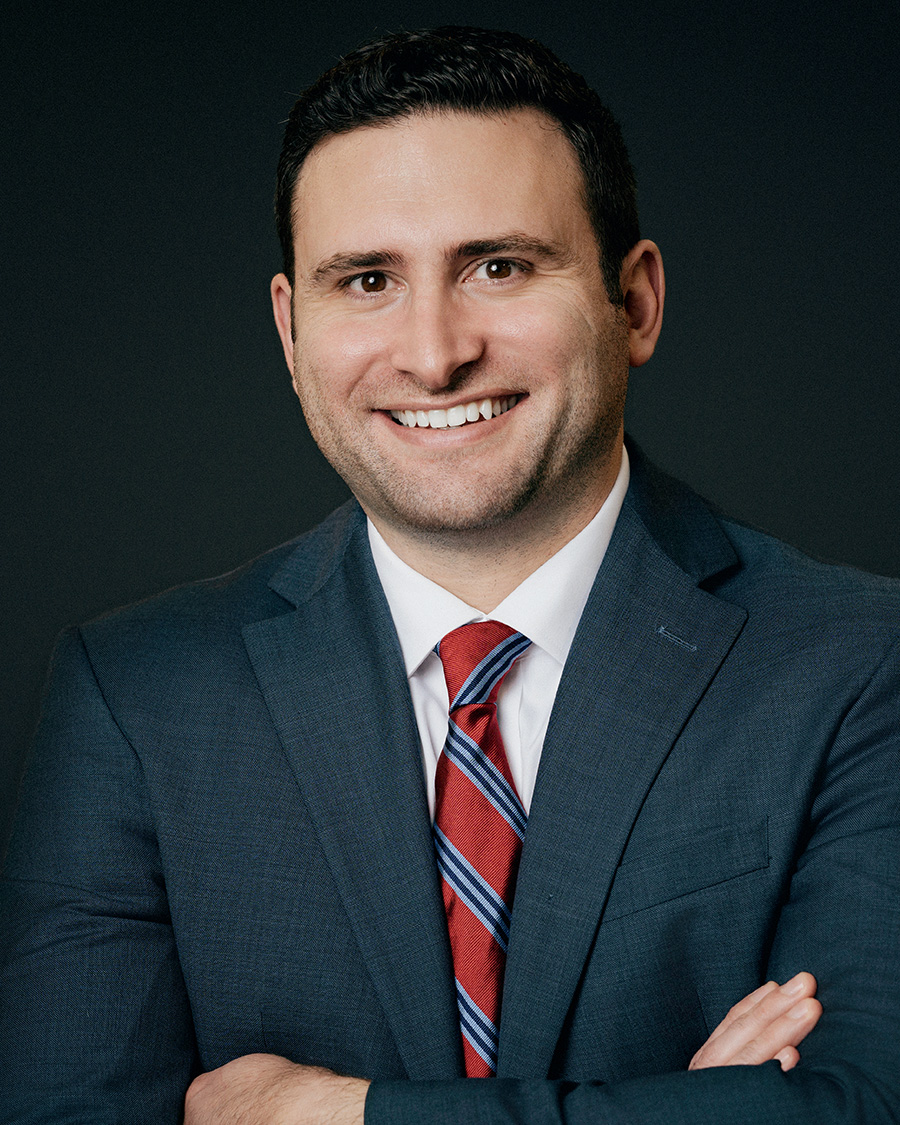All On 4® Dental Implants Post-Op
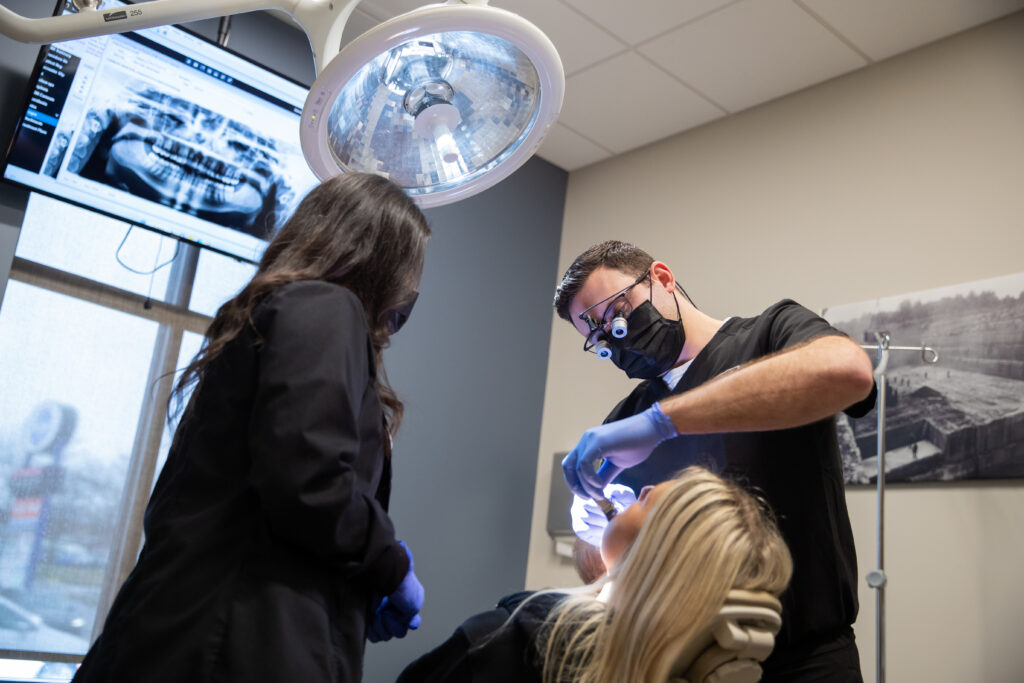
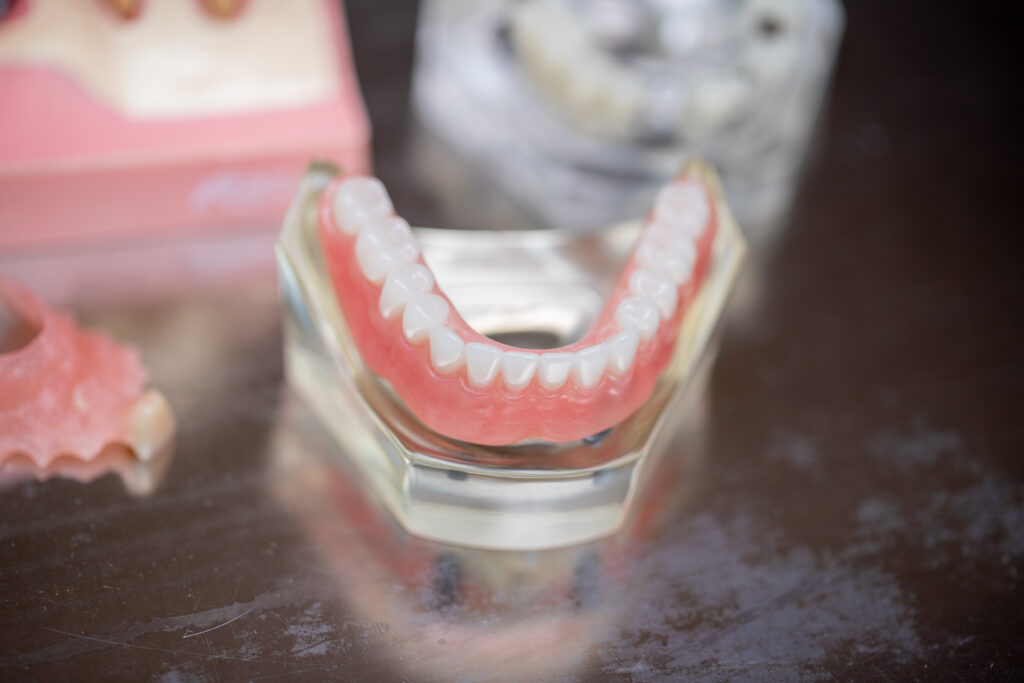
Oral Hygiene
Standards of good oral hygiene are critical for the success and functionality of the implants and restoration. The best way to prevent infection and ensure healing is to keep your mouth clean. Clean your mouth thoroughly after each meal beginning the day after surgery. Use a soft bristle toothbrush and toothpaste after meals and at bedtime. Use of a dental waterpik is highly recommended to irrigate underneath the denture to flush out debris. DO NOT begin use of the dental waterpik until you are directed by your surgeon to do so.
Bleeding
Minimal bleeding is expected after this implant procedure. The best way to stop bleeding is to place a damp piece of gauze in the mouth and gently bite for 30 minutes. Rest quietly with your head elevated. If bleeding continues, use gauze for an additional 30 minutes. Pink or blood-tinged saliva may be seen for 2-3 days following the surgery and does not indicate a problem. Suture material may last 2 to 3 weeks and should be left alone. You will be asked to return to the office for a 2 week follow-up appointment. Any sutures remaining at that time may be removed at the surgeon’s discretion. Do not pull or cut the sutures yourself.
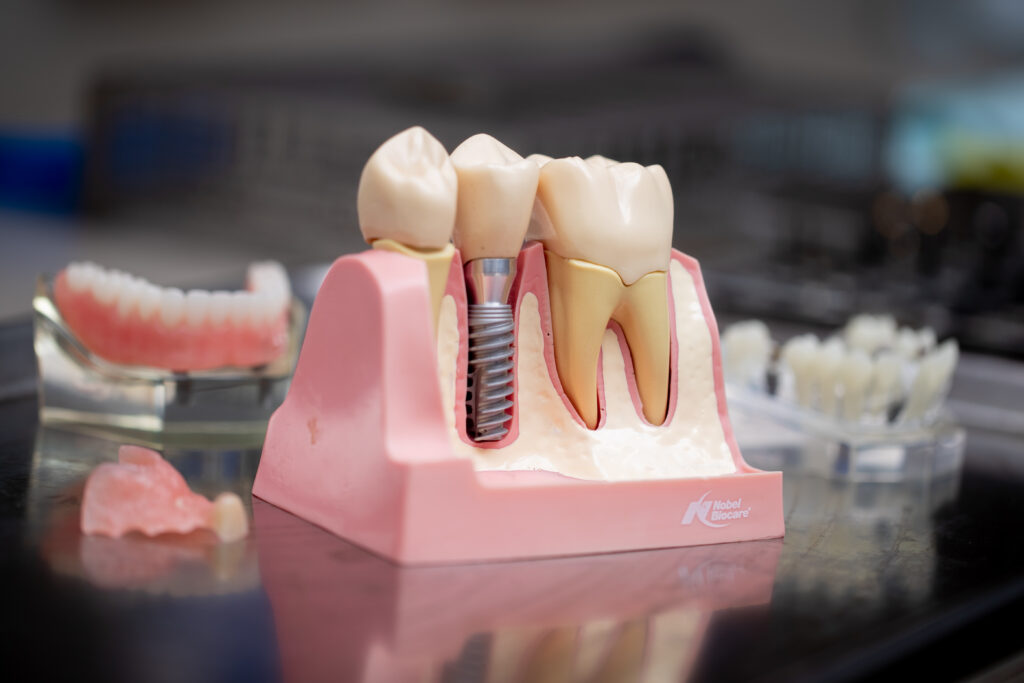
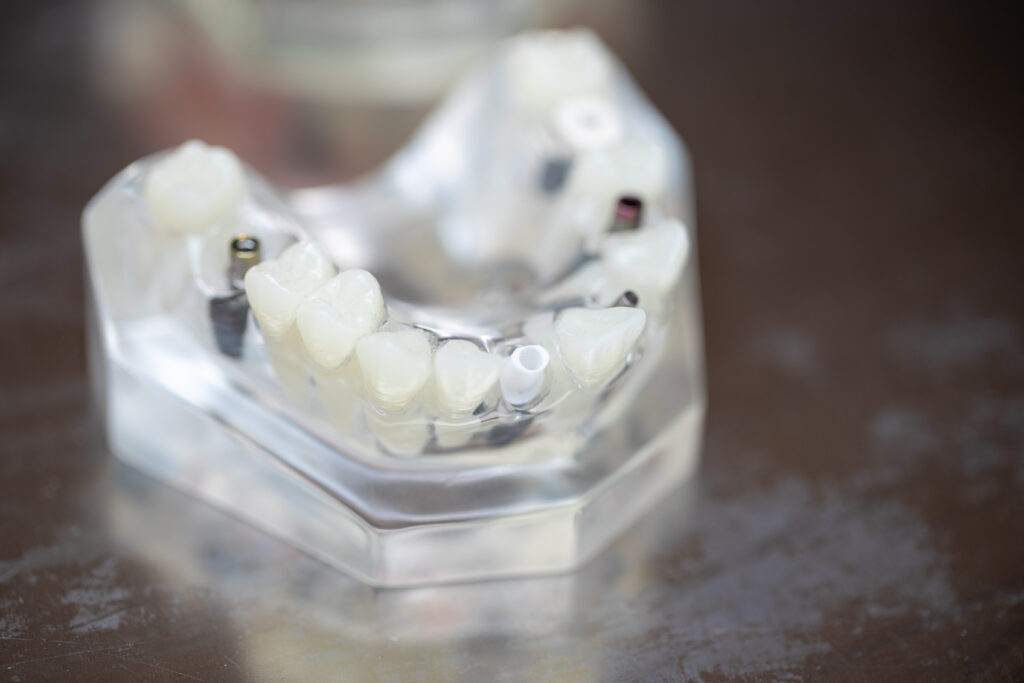
Swelling
Swelling is the body’s normal reaction to surgery and healing. The swelling will not become apparent until 24 hours after surgery and will not reach its peak for 2-3 days. After this time, the swelling should decrease but may persist for 7-10 days. Swelling may be minimized by the immediate use of ice packs. Apply the ice packs to the outside of the face 20 minutes on and then 20 minutes off while awake for the first 24 hours. After 48 hours, begin use of a warm, moist compress to the cheek.
Medication / Pain
Unfortunately, most oral surgery is accompanied by some degree of discomfort. If you do not have an allergy to non-steroidal anti-inflammatory medications like Ibuprofen (Motrin, Advil) we recommend taking this prior to the local anesthetic wearing off. More severe pain may require a narcotic pain medication. Take the narcotic medication and 400mg (2 tablets / 200mg each) of Ibuprofen together every 4-6 hours as needed for pain. While taking a narcotic pain medication you may not drive or operate mechanical machinery. The prescribed pain medication will make you drowsy. Once you feel like you can stop the narcotic, use Ibuprofen and Tylenol together as needed. All medication should NOT exceed the recommended dosage. You may also be prescribed an antibacterial mouth rinse which should be used twice daily in the first two weeks following implant surgery. Post-operative antibiotics should be taken as directed and always take entire course of the prescription. All medications should not exceed the recommended dosage.
*NOTE: If you are taking PLAVIX or COUMADIN, do NOT take Ibuprofen or Aspirin products.
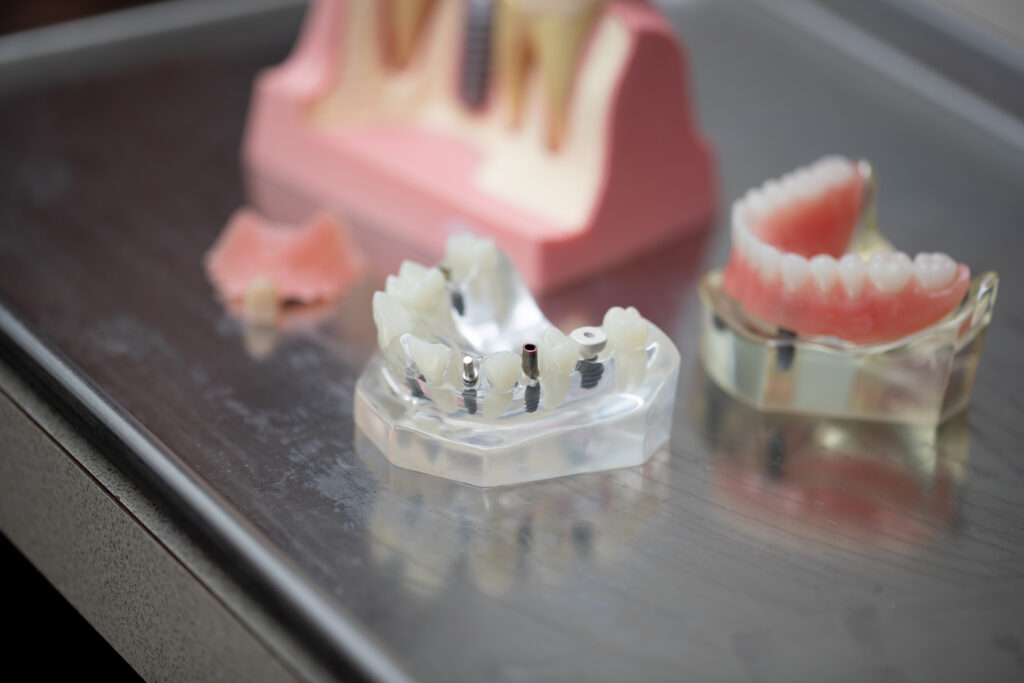
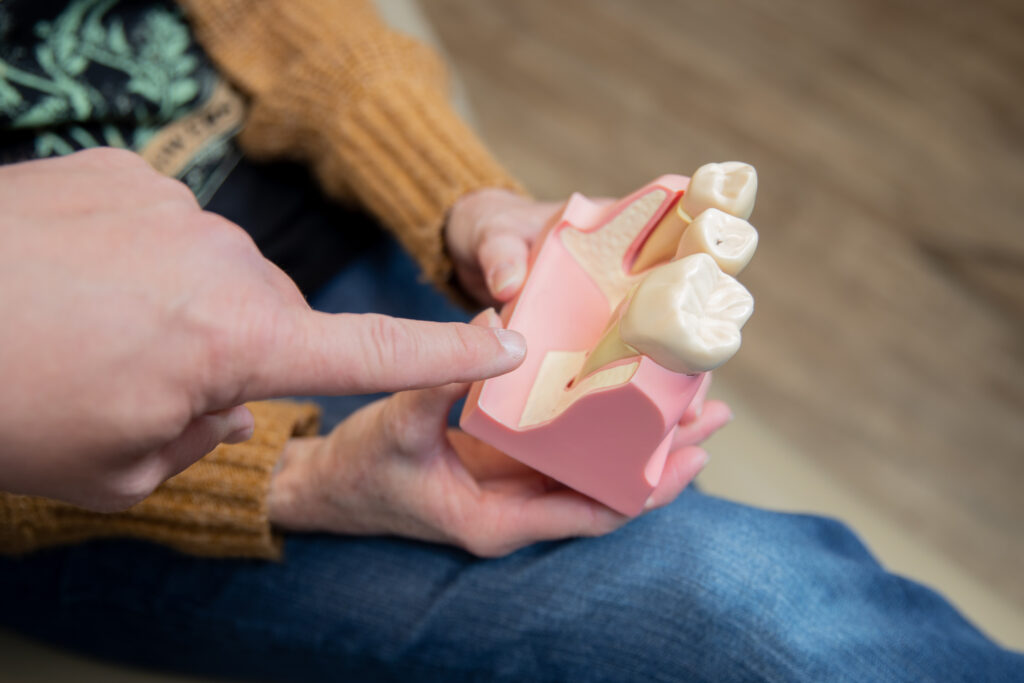
Diet
After General anesthetic or I.V. sedation, start with liquids. While numb, patients should avoid hot liquids or foods. Your food intake will be limited for the first few days, compensate for this by increasing your fluid intake. We recommend high protein shakes/smoothies (Ensure, Special K, etc.) as meal replacement supplements.
Patients are restricted to a SOFT CHEW diet for the first 6 weeks….if food cannot be easily cut with a fork…DO NOT eat it!
Foods to Drink and Eat While Numb
Drink:
- Water
- Juice
- Ice Chips
- Popsicles
Eat:
- Applesauce
- Jell-O
- Pudding
- Yogurt
- Milkshake (no straw)
Soft Foods When Numbness is Gone:
- Mashed Potatoes
- Pasta
- Eggs
- Pancakes
- Creamed Cereals
- Soups (not to hot)
Activity
Rest and relax with no physical activity for the first 3 to 4 days after surgery. After 4 days, you may resume activity as tolerated.
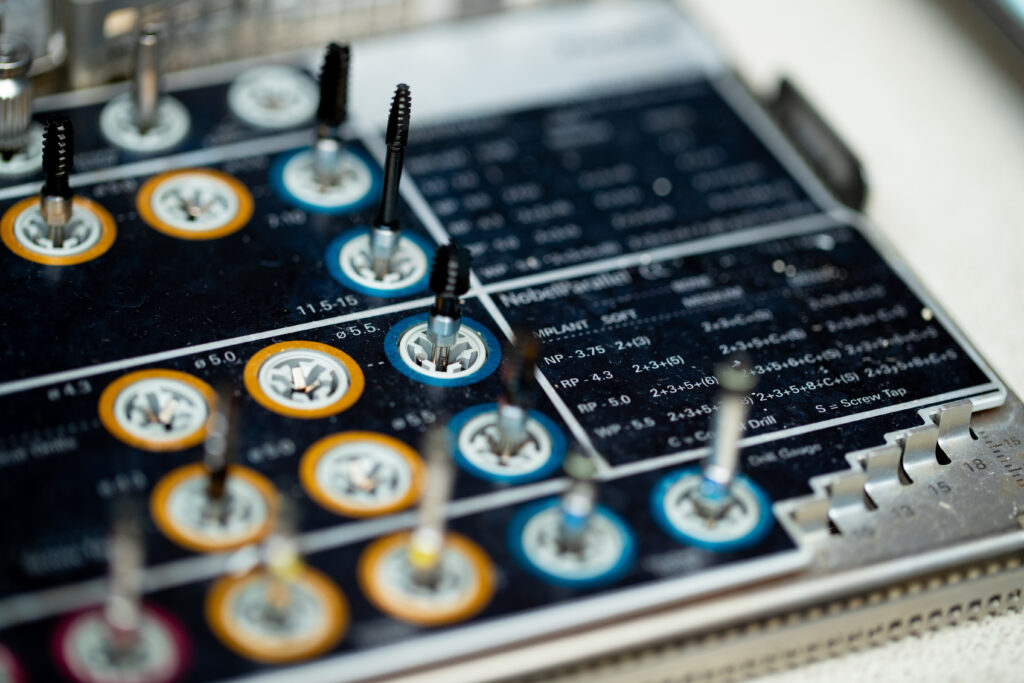
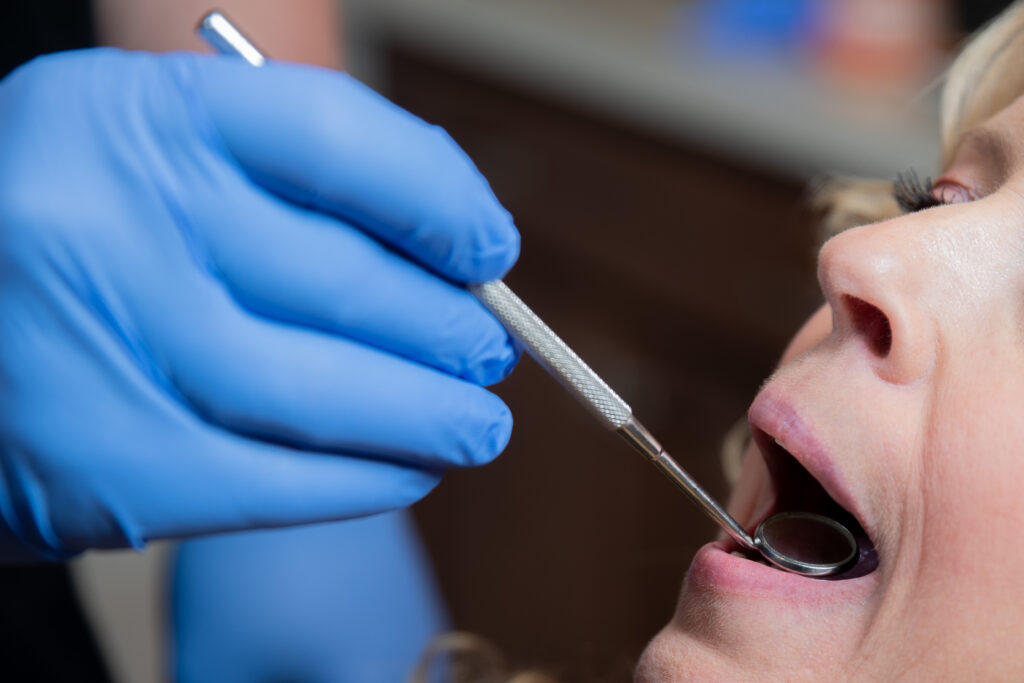
Additional Information
- If the corners of your mouth are stretched, they may dry and crack. Your lips should be kept moist with an ointment such as Vaseline
- Sore throats and pain when swallowing are not uncommon. The muscles get swollen and the normal act of swallowing can become painful. This will typically subside in 2 to 3 days
- Stiffness of the jaw muscles may cause difficulty in opening your mouth for a few days. Do not force your mouth open. Massage the muscles and apply moist heat
- With upper jaw implant treatment, you may develop bleeding from the nose. This is usually a temporary finding and typically will not persist past 2 to 3 days. Follow sinus precautions supplied to you if applicable.
- An appointment with your general dentist may be needed within a few days of surgery to make any adjustments to your temporary denture
- Your case is individual as no two mouths are alike. Discuss all questions or concerns with your oral surgeon or implant coordinator
Get to know us.
At Bloomington Oral Surgery, we know how to help you. Our board-certified surgeons and expert staff can provide the care you need to relieve the discomfort you feel.

